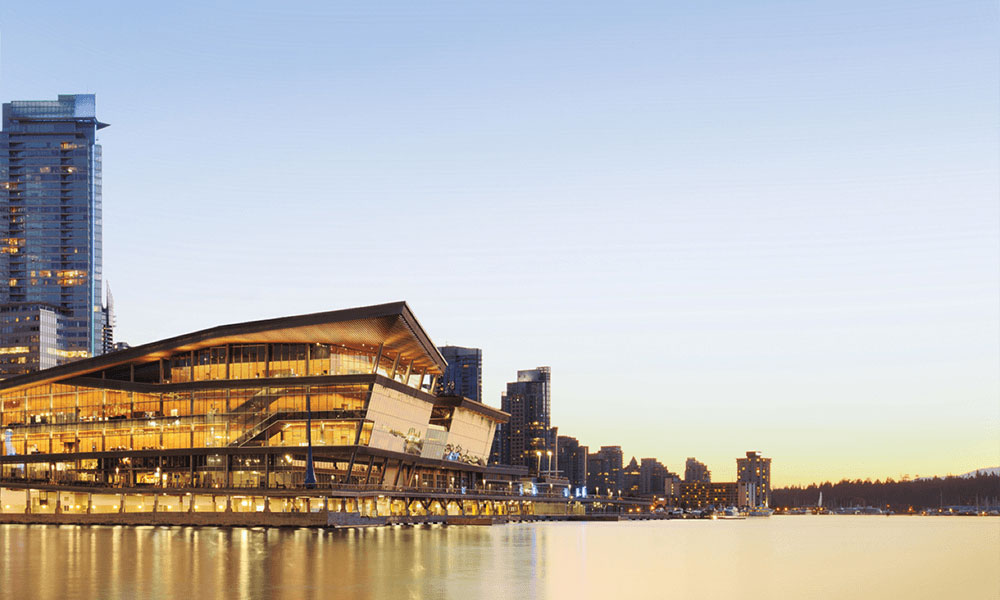
5 Meetings Industry Trends Defining 2017
Meeting planners are dealing with these five conference trends—and finding that cities across Canada are poised to meet their needs.
Some association executives would argue that face-to-face conferences have never been more important than they are today. Sure, we can be in constant contact with those near and far through email, social media, videoconference, and more, but the benefits of face-to-face interaction are still clear.
But simply building a conference doesn’t necessarily mean that attendees will come. Organizational budgets continue to be tight, time is precious, and travel can be onerous. ROI is a consistent question.
Meanwhile, meeting planners are also grappling with a host of new trends—because, of course, every industry evolves. They are looking to hold their meetings in cities that prioritize innovation and have a fantastic culinary culture, cities that offer attendees unforgettable experiences, both during the conference and after. They want a strong partnership with the host city so that all of these things can translate seamlessly into the conference program and directly to attendees.
Cities across Canada are dedicated to working with meeting planners to make all of this a reality. Let’s delve a bit more into each trend and find out how Canadian cities are poised to meet each of these needs.
1. Planners want cities that are attracting innovation.
Cities that invest in technology and innovation are setting themselves up for success. A city’s startup culture extends well beyond business sector or office neighborhood. These fledgling businesses often take advantage of their area’s research institutes, colleges and universities, and general city amenities to excel and grow. Each entity feeds and pushes the other. And all of that can be at a planner’s fingertips for programming purposes (think dynamic keynote speakers, for example).
Vancouver, coastal neighbor to Silicon Valley and Seattle, is one such city. According to a recent report from the Startup Genome and the Global Entrepreneurship Network, Vancouver ranks No. 1 in Canada—and 15th in the world—for business and technology innovation.
2. Everyone wants an amazing culinary experience.
Everyone seems to be a foodie these days. And what better time to ditch the diet than when you are exploring a new culinary landscape? Conference venues have been stepping up their food and beverage game, but attendees will always want to hit the streets for an authentic culinary experience. The best events find a way to embrace both.
As an example, event professionals are embracing the truly international city of Montréal for the top-notch culinary experiences it offers along with the staggering breadth of options that comes from its French heritage, focus on local ingredients, and the diversity that immigrants have brought over this city’s 375-year history.
3. Planners want to deliver unexpected experiences for attendees.
Who doesn’t want a memorable moment? And why shouldn’t an association meeting provide one? Whether they are planning an experiential learning session during conference hours or offering an offsite excursion, today’s meeting planners are creating unique experiences that take advantage of what the host city has to offer.
The Canadian capital of Ottawa offers Signature Experiences, a country-wide program that aims to help meeting planners provide attendees with unique experiences in the city. Ottawa Tourism staff can help meeting planners create meaningful moments for attendees, which will enhance the overall meeting experience.
4. Attendees are increasingly looking to mix business and vacation travel.
It’s tough enough to get away these days. So when people clear the decks to attend a conference, they often consider if they want to add a few vacation days—either solo or with the family. But the conference city must be worthy of their tourist dollars, of course.
No need to worry about this when you book a conference in Alberta. Carylann Assante, CAE, executive director of SYTA Youth Foundation in McLean, Va., recently made the switch from a warm-weather venue for her January meeting to Banff/Lake Louise in Alberta, Canada. She broke attendance records and has already booked future business because of that conference.
5. Planners need partnerships with host cities that can deliver all of the above.
Business Events Canada (BEC) offers one-stop shopping for event planners looking to host a conference or meeting in Canadian cities from coast to coast.
Tuesday Johnson-MacDonald, president of TAP Resources and event manager for the World Indigenous Peoples Conference on Education, appreciates the relationship she has developed with Business Events Toronto, which helps her with research, vendors, speakers and whatever other support she needs to make her conference a success.
“Our team is amazing at identifying and recommending the best locale to host your program,” said BEC Executive Director Chantal Sturk-Nadeau. Indeed, BEC will provide every detail necessary to plan a program, including site and fam trip support, RFP facilitation, customs and tax queries—plus industry contacts.
“Canada understands the importance of association meetings,” said Peter J. O’Neill, CAE, CEO of ASIS International in Alexandria, Va. He’s led two meetings north of the border, one in Montréal and another in Toronto. “They also understand the importance of aligning their own business interests with their client to ensure a win-win and so much more.”
For more information about planning your next amazing conference, visit us-meetings.canada.travel.
(Business Events Canada)





